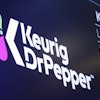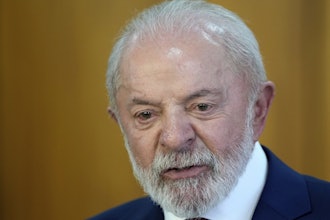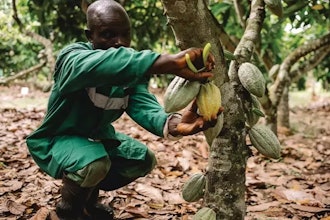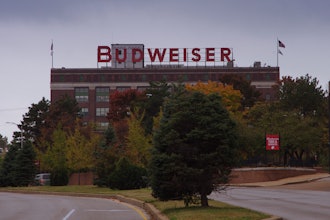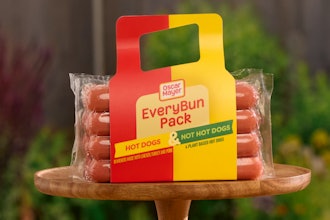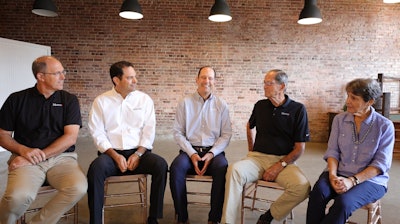
It’s been 90 years since Martin Supply first opened its doors, and in an industry once stacked with family-owned, independent companies, it’s hard to not see them as an outlier today. This Florence, Alabama-based distributor of MRO supplies has seen business trends come and go. In the background, many of its peers have been absorbed by other entities, leading to an entirely new competitive landscape. For Martin, however, fiercely protecting its culture means not being afraid to make changes – a strategy that’s not only served the market, but the business itself.
Business First

Still, Martin Supply’s leaders believe the company’s culture wouldn’t exist without the strong family unit at its foundation.
“That's influenced us in a very positive way in how we behave and how we treat each other, which at the end of the day becomes your culture,” explained Douglas.
At the same time, leadership holds to the value that each member of the team should be held accountable for meeting goals and delivering results – family member or not.
Responding to Dramatic Shifts
After 90 years in business, there’s been some movement in distribution, to say the least. For Martin Supply, some of the biggest changes have come as the nature of competition has changed. After long vying for business among other local distributors, the company – like all industrial suppliers – now shares the stage with national companies with big resources.
“When Douglas and I started in this industry, we really only competed against the local distributors in our region. And that's the only people that we really knew that were in our business,” said David. “Fast forward all these years later, we're competing against national, in some cases international companies that are well-funded and do some things that, quite frankly, the local competitors didn't do.”
Online sellers have also entered the mix – some who also stem from a traditional distributor model and some who don’t. And it’s not just Amazon — “anybody in the world that has an online presence in the industrial distribution marketplace or offers our types of products is now a competitor of ours,” David added.
Competition is one thing, but perhaps a more crucial variable is how the explosion of e-commerce transactions has changed the expectations of buyers. Adapting, for Martin, has meant harkening back to a basic core value: continuous improvement. This is a business that, despite its longevity, doesn’t fear change.
“That was something that our father instilled in us many years ago: you have to continue to try new things and adapt,” said David. “We understand that you either embrace change and continue to move your company forward or, quite frankly, your company dies. Fear of failure has never been a deterrent for us; the reality is all of these shifts have made us a more innovative, nimble organization.”
'Fast Followers'
This ability to be flexible helped Martin establish a notable competitive advantage: the feel of a small business with the resources of a big one. Martin prides itself on offering custom-tailored solutions in a way that online-only retailers don’t, while still emphasizing a technology-forward business model rooted in a new ERP system and great data supported by AI algorithms, business intelligence and analytics in order to “give the customer the experience that they want,” said David. “People still buy from people, but with that you have to have the technology.”
And while early adopters might generate interest for their willingness to jump in first, Martin believes that there is a happy medium between being the trendsetter and the laggard: “We want to be fast followers,” Douglas said, in order to “observe what’s going on in the market and then adapt and stay ahead of the curve.”

Still, that doesn’t mean that Martin feels the need to modify its core competencies as a distributor.
“We have a big online presence,” said Douglas. “But it is tailor-made for the specific customers that we're targeting. We're not throwing a wide net out trying to chase orders. We're seeing strategic customers that value what we have to offer as an independent distributor. And I think our team does a great job at that.”
Adding Companies, Talent
Adding more notoriety to this landmark anniversary year, Martin announced in April that it had acquired Trinity Hardware Headquarters, a global manufacturer of wear parts, components and accessories based in Waukesha, Wisconsin. The deal was the company’s first since a flurry of acquisitions between 2020 and 2022, capped by the addition of Quality Mill Supply Co.
David sees big opportunities in industrial distribution, meaning the business doesn’t feel the need to diversify outside the market it’s in. This includes assessing acquisitive growth opportunities, something that’s long been a part of Martin’s strategic plan. David believes that adding customers, products and geographies is only part of the equation; the other key piece of an acquisition is talent. In a consolidating industry, upheaval can lead to opportunity.
“A lot of times during consolation, very talented individuals become available, and we’ve been able to add some of these people to Martin,” said David.
Douglas echoed this sentiment, adding that offering the right culture is a critical part of Martin’s ability to recruit in these moments.
“How do we build something that people want to be a part of?” he asked. “If we have the right culture, then we attract the right people.”
And it doesn’t matter whether Martin is adding people or companies, the criteria is the same: “First, second and last is culture,” said Douglas.
While managing a positive culture is often a bit of a secret sauce, Martin believes that getting “out of our cocoon” and networking among industry peers has played a key role in enabling the company to generate new and transformational ideas in order to support the business environment and its growth.
How to 'Win in the Marketplace'
Ultimately, Martin’s leaders believe that 90 years in the business only measures your ability to roll with the punches. Without a willingness to approach the market as it is today, no business can thrive, no matter their history.
“We obviously aren't the same company we were 90 years ago; nothing similar to that. The reality is we're not the same company we were 10 years ago and if we're doing our jobs as leaders of the company, we won't be the same 10 years from now,” said Douglas. “Our customers aren't sitting still, so we have to continue to drive forward.”
But it’s driving forward with focus that sets Martin Supply apart.

And the sky's the limit when you consider the business conditions and opportunities ahead.
“The North American marketplace is a great place to be an industrial distributor today,” added David. “We see a long runway for our business to continue to grow.”


